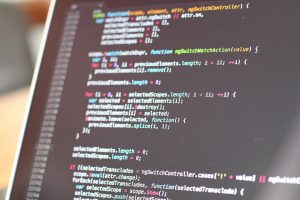Food and Beverage Case Study
Business Scenario
This case study exemplifies the application of key legislative requirements for eligible R&D activities as they apply to relevant activities in the food and beverage industry.
Bryan Beef is a privately owned manufacturer of processed beef products for the food and retail industries in the U.S. As part of the food and beverage industry, Bryan Beef is constantly focusing on new product development to remain competitive in the field. It is regularly conducting R&D activities to come up with new products relating to food safety, cost reduction, organic/natural products, dietary guidelines and sustainable resources.
To keep up with the times, Bryan Beef launched an R&D project with the main business objective being to produce certified organic beef products. In order to do this, Bryan Beef had to completely reinvent its manufacturing process.
Bryan Beef had never claimed the R&D tax credit before, and believed its activities would not qualify. To be eligible, it needed to satisfy four main criteria, known as the Four-Part Test. After meeting with a specialist, Bryan Beef realized it was eligible for the credit.
Bryan Beef’s Eligible R&D Activities
The R&D tax credit specialist helped Bryan beef determine its qualifying R&D activities, many of which were part of the company’s daily operations. Bryan Beef’s qualified research expenses (QRE) included:
- Development of new or improved product formulations to meet changing consumer preferences;
- Development of new packaging to extend the shelf life of products;
- Modifications to existing manufacturing processes to comply with new regulations;
- Development of manufacturing processes to accommodate new products or optimize processing;
- Automation of manufacturing functions to minimize product contamination;
- Continuous improvement projects aimed at reducing scrap, waste, and spoilage and/or conserving water and utilities; and
- Machine layout design changes to reduce manufacturing time and increase production.
Bryan Beef claimed the federal R&D tax credit and was granted more than $140,000 in credits. A sustainable methodology was also established to help the company identify, document and substantiate eligible R&D projects and costs on an ongoing basis.
Live Webinar: The R&D Tax Credit in the Food and Beverage Industry
Duration: 60 Minutes
Learning objectives include:
- An overview of R&D Tax Credits
- Identify Qualifying Research Activities
- Define the 4-Part Test
- How to substantiate activities through documentation
- Identify Qualifying Research Expenses
Cost: FREE
CE/CPE credits: Worth one hour
Knowledge Level: Basic*
Field of Study: Taxation
Qualified Research Defined
Qualified research consists of research for the intent of developing new or improved business components. A business component is defined as any product, process, technique, invention, formula, or computer software that the taxpayer intends to hold for sale, lease, license, or actual use in the taxpayer’s trade or business.
The Four-Part Test
Activities that are eligible for the R&D Credit are described in the “Four-Part Test” which must be met for the activity to qualify as R&D.
- Permitted Purpose: The purpose of the activity or project must be to create new (or improve existing) functionality, performance, reliability, or quality of a business component.
- Elimination of Uncertainty: The taxpayer must intend to discover information that would eliminate uncertainty concerning the development or improvement of the business component. Uncertainty exists if the information available to the taxpayer does not establish the capability of development or improvement, method of development or improvement, or the appropriateness of the business component’s design.
- Process of Experimentation: The taxpayer must undergo a systematic process designed to evaluate one or more alternatives to achieve a result where the capability or the method of achieving that result, or the appropriate design of that result, is uncertain at the beginning of the taxpayer’s research activities.
- Technological in Nature: The process of experimentation used to discover information must fundamentally rely on principles of hard science such as physical or biological sciences, chemistry, engineering or computer science.
What records and specific documentation did Bryan Beef keep?
Similar to any tax credit or deduction, Bryan Beef had to save business records that outlined what it did in its R&D activities, including experimental activities and documents to prove that the work took place in a systematic manner. Bryan Beef saved the following documentation as evidence:
- Project records/ lab notes
- Conceptual sketches
- Design drawings
- Photographs/ videos of various stages of build/ assembly/ testing
- Prototypes
- Testing protocols
- Results or records of analysis from testing/ trial runs
- Tax invoices
By having these records on file, Bryan Beef confirmed that it was ‘compliance ready’ — meaning if it was audited by the IRS, it could present documentation that illustrated the progression of its R&D activity, therefore proving its R&D eligibility.




































